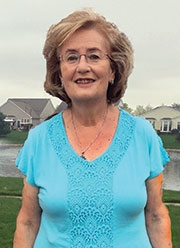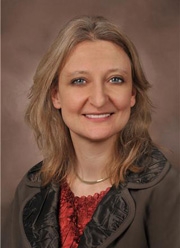Generally found after the age of 69, it's more likely to strike men than women
According to the American Cancer Society, about 28,000 Americans are diagnosed with stomach cancer every year. This cancer is generally found after the age of 69, and is more likely to strike men than women. While it’s been on the decline since the late 1930s, thanks to improved refrigeration and antibiotics, it remains a concern for baby boomers.
 At 69, Vera Weinstein was planning a leisurely cross-country trip to visit her daughter in California. She was due for a colonoscopy, so she scheduled one a few days before the trip. Then her doctor followed up with an endoscopy because she complained of acid reflux. To everyone’s surprise, this test showed stomach cancer.
At 69, Vera Weinstein was planning a leisurely cross-country trip to visit her daughter in California. She was due for a colonoscopy, so she scheduled one a few days before the trip. Then her doctor followed up with an endoscopy because she complained of acid reflux. To everyone’s surprise, this test showed stomach cancer.
“My husband and I have always eaten well, with lots of fruits and vegetables and everything made from scratch,” Vera said. “I didn’t fit the profile of the average stomach cancer patient, so it was a shock to get this news.”
Fortunately, the Weinsteins had a strong connection to Columbia. Vera’s husband Len had been treated there for pancreatic cancer. “Len had very successful surgery,” Vera says. “Five years to the day, we were going to celebrate his recovery, when we found out about mine.”
 Len’s doctor came to the rescue, setting up an appointment for Vera with Beth Schrope, MD, PhD a general surgeon known for her expertise in gastric cancer. Dr. Schrope is also Director of the Pancreatic Cyst Surveillance Program at Columbia’s Pancreas Center.
Len’s doctor came to the rescue, setting up an appointment for Vera with Beth Schrope, MD, PhD a general surgeon known for her expertise in gastric cancer. Dr. Schrope is also Director of the Pancreatic Cyst Surveillance Program at Columbia’s Pancreas Center.
“I told Dr. Schrope that I was worried and upset,” Vera recalls. “But she was so upbeat and cheerful. She said, ‘What is the point of worrying until you have to?’ Immediately she calmed me down.”
Dr. Schrope performed a distal gastrectomy, removing the bottom portion of Vera’s stomach. She also found cancer cells in Vera’s lymph nodes and recommended chemotherapy.
“I recovered from the surgery in three days,” Vera recalls. “And there were plenty of people on hand to help me. Donald Garmen, my nurse practitioner, was there 24/7 to answer any questions. The nutritionist was also on top of her game and helped me greatly. I was put on a very strict diet for a month until my stomach started working.”
“Vera and her husband were justifiably concerned at her diagnosis,” says Dr. Schrope, “but together our team at Columbia devised a comprehensive care plan including minimally invasive surgery and chemotherapy. She recovered beautifully from surgery and tolerated the chemotherapy like a trooper. Vera was supported by our team—a surgeon and an oncologist, and an array of nurse practitioners and care specialists—and also by her husband. I am thrilled to see how well she has done throughout her treatment and happy to see her planning for an ambitious future.”
Vera’s last CT scan was clear, and she is looking forward to more travel, including a trip to Hawaii and a Scandinavian cruise: “My husband and I have a long bucket list,” she said,”and there are many more things we want to do.”
